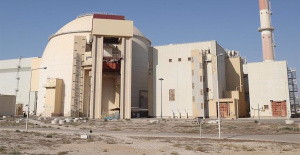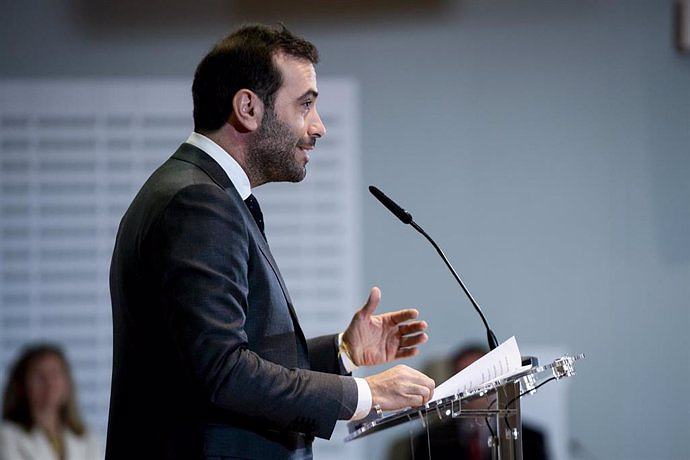The Uruguayan Government describes the judicial decision as "inadmissible" and announces that it will appeal it
MADRID, 8 Jul. (EUROPA PRESS) -
A judge has ruled this Thursday the suspension of anticovid vaccination for children under 13 years of age throughout Uruguay after describing the vaccine as "not being scientifically approved", and until the Government presents the contracts for the purchase of the vaccines and publishes so complete the composition of "substances to be inoculated".
The decision has taken place after an anti-vaccine group presented last Friday to the Administrative Litigation Court (TCA) an injunction requesting the prohibition of the COVID-19 vaccine for those under 13 years of age for "illegal and unconstitutional" and for "continuing in the experimental phase", as reported by Teledoce.
The suspension, communicated in a ruling in which the health authorities are warned of "warning" in case of contempt, requires that "those responsible for minors" be provided with a text that informs "completely and clearly" of the content of injections, as well as their benefits and the possible risks that the inoculation entails.
"Even respecting the self-determination and freedom of each parent, the best interests of each child must prevail, and it is necessary to keep in mind, at no time, that we are not facing a scientifically approved medical prescription, but rather an experiment, that not because of its colossal magnitude ceases to be what it is: an experiment," says the judge, Alejandro Recarey, in the sentence collected by the newspaper 'El Observador'.
Likewise, Recarey has argued that, although vaccination is not mandatory but is recommended, "it would be like allowing a merchant to sell food without sanitary control on the basis that no one is obliged to buy it."
Before this sentence, the Uruguayan Executive accused the judge, Alejandro Recarey, questioning his impartiality, since he had previously expressed his opinion against vaccination, according to the Uruguayan newspaper 'El País'.
And now, after the judicial decision, the Uruguayan Prosecutor's Office and the Ministry of Health have announced in separate statements that they will abide by the ruling --which has immediate effect-- while at the same time appealing it, maintaining that "each of the decisions taken regarding vaccination" have been based on "the available scientific evidence".
"Given the decision of the substitute judge Alejandro Recarey to suspend vaccination against COVID-19 in the population under 13 years of age, the Ministry of Public Health resolves to abide by the judge's ruling while appealing it. For this reason, as of Today the vaccines for this population will no longer be available until further notice," the Uruguayan Health portfolio said in a statement.
After Recarey's ruling, the health authorities have stressed the importance of "maintaining non-pharmacological care, especially in populations that have not received vaccines or have not completed their vaccination status."
"This judge's decision places responsibility on the Justice for the possible impact on the health of a number of minors in Uruguay who wanted to be vaccinated," said the secretary of the Presidency, Álvaro Delgado, mentioning that this Thursday 5,800 children had an appointment to get vaccinated.
"The first thing the Government is preparing is the immediate appeal of this judicial ruling. The rulings are followed but they can be criticized and this ruling is nonsense," Delgado added.
Likewise, the secretary of the Presidency has described as "inadmissible" that the National Vaccination Plan be considered "illegal and unconstitutional": "For the Government and for Uruguay as a whole, this is inadmissible."
"As a citizen and as a parent, the fact that a decision by a judge suspends a vaccination that is voluntary worries us greatly (...) There was no more prepared and studied vaccination plan than the Uruguayan one, backed by science," he asserted.

 Exploring Cardano: Inner Workings and Advantages of this Cryptocurrency
Exploring Cardano: Inner Workings and Advantages of this Cryptocurrency Seville.- Economy.- Innova.- STSA inaugurates its new painting and sealing hangar in San Pablo, for 18 million
Seville.- Economy.- Innova.- STSA inaugurates its new painting and sealing hangar in San Pablo, for 18 million Innova.- More than 300 volunteers join the Andalucía Compromiso Digital network in one month to facilitate access to ICT
Innova.- More than 300 volunteers join the Andalucía Compromiso Digital network in one month to facilitate access to ICT Innova.-AMP.- Ayesa acquires 51% of Sadiel, which will create new technological engineering products and expand markets
Innova.-AMP.- Ayesa acquires 51% of Sadiel, which will create new technological engineering products and expand markets Iran closed its nuclear facilities on Sunday after its attack on Israel
Iran closed its nuclear facilities on Sunday after its attack on Israel RELEASE: ELFBAR focuses on the recyclability of vaping with continuous dedication
RELEASE: ELFBAR focuses on the recyclability of vaping with continuous dedication STATEMENT: IDB Invest meets with investors to present its new business model and capital increase
STATEMENT: IDB Invest meets with investors to present its new business model and capital increase The 'King of Cachopo' admits for the first time from prison that he killed his partner and asks for forgiveness
The 'King of Cachopo' admits for the first time from prison that he killed his partner and asks for forgiveness How Blockchain in being used to shape the future
How Blockchain in being used to shape the future Not just BTC and ETH: Here Are Some More Interesting Coins Worth Focusing on
Not just BTC and ETH: Here Are Some More Interesting Coins Worth Focusing on A team of UPV and iPRONICS manufactures the first programmable and multifunctional photonic chip on the market
A team of UPV and iPRONICS manufactures the first programmable and multifunctional photonic chip on the market 'Science and Reeds' returns with talks about "the mystery of the lost socks" or the vinegar fly
'Science and Reeds' returns with talks about "the mystery of the lost socks" or the vinegar fly They develop smart infrastructure to improve road safety
They develop smart infrastructure to improve road safety They develop a new computer tool to investigate the complexity of the genome
They develop a new computer tool to investigate the complexity of the genome A million people demonstrate in France against Macron's pension reform
A million people demonstrate in France against Macron's pension reform Russia launches several missiles against "critical infrastructure" in the city of Zaporizhia
Russia launches several missiles against "critical infrastructure" in the city of Zaporizhia A "procession" remembers the dead of the Calabria shipwreck as bodies continue to wash up on the shore
A "procession" remembers the dead of the Calabria shipwreck as bodies continue to wash up on the shore Prison sentences handed down for three prominent Hong Kong pro-democracy activists
Prison sentences handed down for three prominent Hong Kong pro-democracy activists ETH continues to leave trading platforms, Ethereum balance on exchanges lowest in 3 years
ETH continues to leave trading platforms, Ethereum balance on exchanges lowest in 3 years Investors invest $450 million in Consensys, Ethereum incubator now valued at $7 billion
Investors invest $450 million in Consensys, Ethereum incubator now valued at $7 billion Alchemy Integrates Ethereum L2 Product Starknet to Enhance Web3 Scalability at a Price 100x Lower Than L1 Fees
Alchemy Integrates Ethereum L2 Product Starknet to Enhance Web3 Scalability at a Price 100x Lower Than L1 Fees Mining Report: Bitcoin's Electricity Consumption Declines by 25% in Q1 2022
Mining Report: Bitcoin's Electricity Consumption Declines by 25% in Q1 2022 Oil-to-Bitcoin Mining Firm Crusoe Energy Systems Raised $505 Million
Oil-to-Bitcoin Mining Firm Crusoe Energy Systems Raised $505 Million Microbt reveals the latest Bitcoin mining rigs -- Machines produce up to 126 TH/s with custom 5nm chip design
Microbt reveals the latest Bitcoin mining rigs -- Machines produce up to 126 TH/s with custom 5nm chip design Bitcoin's Mining Difficulty Hits a Lifetime High, With More Than 90% of BTC Supply Issued
Bitcoin's Mining Difficulty Hits a Lifetime High, With More Than 90% of BTC Supply Issued The Biggest Movers are Near, EOS, and RUNE during Friday's Selloff
The Biggest Movers are Near, EOS, and RUNE during Friday's Selloff Global Markets Spooked by a Hawkish Fed and Covid, Stocks and Crypto Gain After Musk Buys Twitter
Global Markets Spooked by a Hawkish Fed and Covid, Stocks and Crypto Gain After Musk Buys Twitter Bitso to offset carbon emissions from the Trading Platform's ERC20, ETH, and BTC Transactions
Bitso to offset carbon emissions from the Trading Platform's ERC20, ETH, and BTC Transactions Draftkings Announces 2022 College Hoops NFT Selection for March Madness
Draftkings Announces 2022 College Hoops NFT Selection for March Madness

























